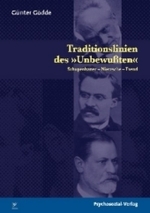- ホーム
- > 洋書
- > 英文書
- > Politics / International Relations
Full Description
The question of how Donald Trump won the 2016 election looms over his presidency. In particular, were the 78,000 voters who gave him an Electoral College victory affected by the Russian trolls and hackers? Trump has denied it. So too has Vladimir Putin. Others cast the answer as unknowable.
Drawing on path-breaking work in which she and her colleagues isolated significant communication effects in the 2000 and 2008 presidential campaigns, the eminent political communication scholar Kathleen Hall Jamieson marshals the troll posts, unique polling data, analyses of how the press used the hacked content, and a synthesis of half a century of media effects research to argue that, although not certain, it is probable that the Russians helped elect the 45th president of the United States.
In the process, Cyberwar tackles questions that include: How extensive was the troll messaging? What characteristics of the social media platforms did the Russians exploit? Why did the mainstream press rush the hacked content into the citizenrys newsfeeds? Was Clinton telling the truth when she alleged that the debate moderators distorted what she said in the leaked speeches? Did the Russian influence extend beyond social media and news to alter the behavior of FBI director James Comey?
After detailing the ways in which the Russian efforts were abetted by the press, social media platforms, the candidates, party leaders, and a polarized public, Cyberwar closes with a warning: the country is ill-prepared to prevent a sequel.
Contents
PrologueIntroductionPart One: Who Did It, Why, and How It May Have MatteredChapter One: How Do We Know that the Russians Meddled in the 2016 U.S. Presidential Election?Chapter Two: A Theory of Communication that Posits EffectsPart Two: The Pre-Requisites of InfluenceChapter Three: Pre-Requisite One: Widespread MessagingChapter Four: Pre-Requisite Two: Messages Aligned with Trump's Electoral InterestsChapter Five: Pre-Requisite Three: Messages to Mobilize Veterans and White Christians, Demobilizing Blacks and Sanders' Supporters, Shifting Liberals to SteinChapter Six: Pre-Requisite Four: Well-Targeted ContentChapter Seven: Pre-Requisite Five: Persuasive AppealsPart Three: Exposure: How the Russians Affected the News and Debate Agendas in the Last Month of the Campaign Chapter Eight: The Russian Effect On Press Coverage in OctoberChapter Nine: The Effect of the Stolen Emails on the Last Two Presidential DebatesChapter Ten: The Russian Effect on the Media Agenda in the Last Days of the ElectionPart Four: What We Don't, Can't, and Do Know About How Russian Hackers and Trolls Helped Elect Donald J. TrumpAfterword: LessonsAppendicesAppendix One: Changes in Perceptions of Clinton and Trump in OctoberAppendix Two: Debate 2 and Debate 3 Exposure Effect on Candidate Trait EvaluationsAppendix Three: Association between Perception Changes and Vote IntentionsReferences







